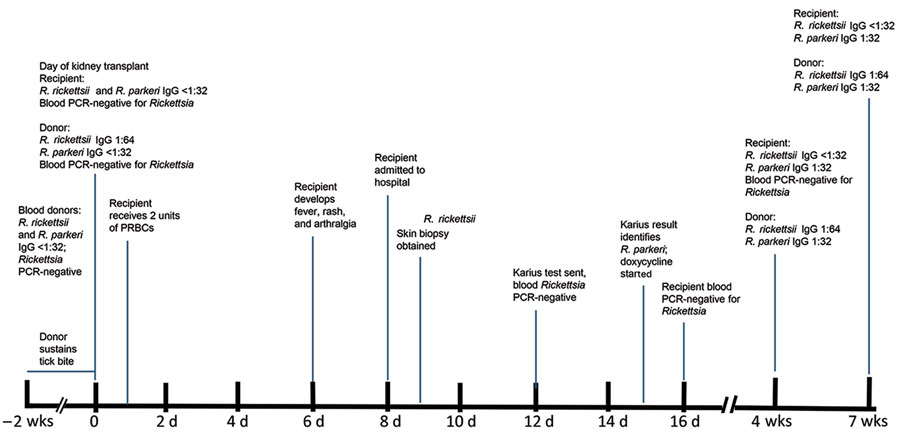Volume 30, Number 7—July 2024
Dispatch
Rickettsia parkeri Rickettsiosis in Kidney Transplant Recipient, North Carolina, USA, 2023
Figure 1

Figure 1. Transmission and testing timeline for case of Rickettsia parkeri rickettsiosis in a kidney transplant receipient, North Carolina, USA, 2023. Pretransplant samples were tested retrospectively to determine possible transmission risk from 2 blood donors and the kidney donor. PRBCs, packed red blood cells.
Page created: June 18, 2024
Page updated: June 22, 2024
Page reviewed: June 22, 2024
The conclusions, findings, and opinions expressed by authors contributing to this journal do not necessarily reflect the official position of the U.S. Department of Health and Human Services, the Public Health Service, the Centers for Disease Control and Prevention, or the authors' affiliated institutions. Use of trade names is for identification only and does not imply endorsement by any of the groups named above.